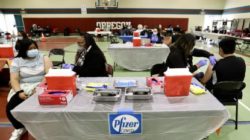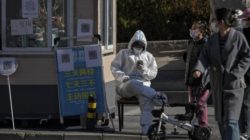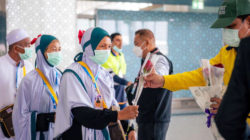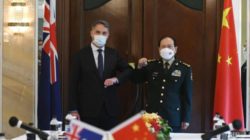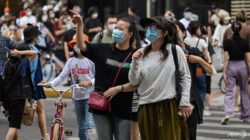BEIJING: Beijing citizens will be required to pass COVID-19 testing in order to enter public spaces, officials announced on Saturday (Apr 30), introducing new virus controls at the start of a Labor Day holiday marred by creeping diseases in the capital.
The five-day holiday is usually one of China’s busiest travel times, but the country’s worst COVID-19 comeback since the pandemic’s inception is likely to keep many at home.
Faced with the extremely contagious Omicron variety, Chinese officials have stepped up their zero-COVID policy, eradicating viral clusters through mass testing and lockdowns.
Despite rising economic losses and public outrage, the capital city stated that access to public spaces would be further restricted following the Christmas season.
A negative COVID-19 test done within the last week will be required to enter “all kinds of public spaces and to ride public transportation” beginning May 5, according to a notification on the city’s official WeChat page.
According to the new requirements, participants in activities such as sporting events and group trips will also need to provide a negative COVID-19 test done within 48 hours, as well as confirmation of “complete vaccination.”
On Saturday, China reported around 10,700 domestic cases, with the majority of them occurring in Shanghai.
After becoming the epicenter of the new outbreak, Shanghai has been quarantined for about a month.
Cases are decreasing, but irritation and fury are running high in the city of 25 million people, where many have been advised to stay at home for several weeks.
Shanghai officials said on Saturday that the city’s new cases were all discovered in quarantined or restricted areas, indicating that community infections may be declining.
They also stated that hundreds of enterprises on a “whitelist” have resumed operations, with a further 1,000 firms permitted to do so, according to official media.
According to the National Health Commission, the number of new cases in Beijing has risen to 54.



